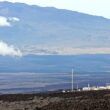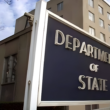An uproar already exists in religious communities
By Jessica Wilbanks, September 18, 2007
Lawrence Wittner’s frustration is understandable. Like most other citizens, religious bodies and
denominations in the United States have become less active on nuclear weapons issues since the end
of the Cold War. Faithful Security exists to change that.
As Wittner points out, religious bodies and denominations have produced numerous strong
statements against nuclear weapons. They’re powerful, but they’re not enough. These statements
rarely trickle from the pulpits to the pews, or in some cases, from the denominational hierarchy
into the pulpits. Even when they do, awareness doesn’t always lead to action. Religious people with
a deep-seated moral opposition to nuclear weapons aren’t “automatically organized” like many
others, religious people need to be connected with educational materials and opportunities for
action.
While there are some within the religious community who don’t accept the inherent immorality of
nuclear weapons, most are sympathetic to the idea of a nuclear-weapon-free world, but are unsure of
its feasibility. Others are unsure how to become involved in disarmament efforts or are
uncomfortable speaking about the issue. Creative campaigns are necessary to educate and mobilize
these individuals.
In addition, the demographics of religious communities in the United States are rapidly
changing. Some mainstream denominations are losing membership, while evangelical churches and the
Catholic Church are rapidly growing and diversifying. In the age of online campaigns, individual
clergy and lay leaders are more powerful than ever before. There are numerous opportunities for
outreach, but those who aim to recruit people of faith into activist work may find a new
sensitivity toward “being used” for a political agenda. A renewed dedication toward working for a
nuclear-weapon-free world must come from deep within religious traditions, led by those who are
drawn to this issue from their faith perspective. Faithful Security aims to support individuals and
religious groups engaged in this work by providing means for collective witness both nationally and
locally, developing and distributing educational materials, and supporting those engaged in
theological work from the depth of their own tradition.
Change will not happen overnight, but this work is already bearing fruit. You won’t find it
covered on the front page of the
New York Times, but rather in local publications such as the
Santa Fe New Mexican, which recently quoted the head of the New Mexico Conference of
Churches speaking out against the production of new plutonium pits. The uproar from the religious
community may not be covered on CNN, but it’s present in a number of videos posted on
YouTube. In this new
climate, religious leaders are journeying to Tehran to meet with Iranian religious and political
leaders in hopes of bringing about a peaceful resolution to the current nuclear standoff with Iran
and speaking out in favor of a diplomatic strategy to denuclearize North Korea. Those who read
Sojourners
,
TIKKUN
, or Faith and Public Life’s news alerts are already aware of these efforts. For those who
don’t read these publications, I encourage you to do so. You may be surprised at the uproar that
exists already.
Share: [addthis tool="addthis_inline_share_toolbox"]














